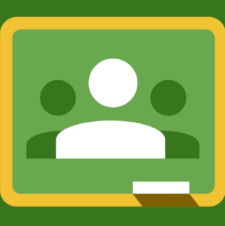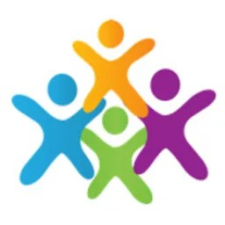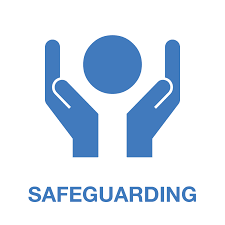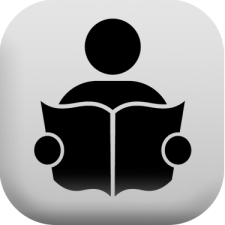Modern Foreign Languages
Curriculum Intent
Why do we need to learn a language? One of the most rewarding aspects of human experience is our ability to connect with others. Being able to communicate with someone in his or her language is an incredible gift. Bilinguals have the unique opportunity to communicate with a wider range of people in their personal and professional lives. Knowing the language makes you a local no matter where you are, opening up your world literally and figuratively.
Language skills can be a significant competitive advantage that sets you apart from your monolingual peers. They are among the top eight skills required of all occupations—no matter your sector or skill level—and the demand for bilingual professionals is rising exponentially. Employers are seeking professionals who can communicate seamlessly with customers in new and expanding overseas markets, as well as serve and sell to a large foreign-born population here at home.
Moreover, there are many undeniable cognitive benefits of learning languages. People who speak more than one language have improved memory, problem-solving and critical-thinking skills, enhanced concentration and better listening skills. They switch between competing tasks and monitor changes in their environment more easily than monolinguals, as well as display signs of greater creativity and flexibility. It also helps to stave off mental aging and cognitive decline.
What is offered at The South Wolds Academy and Sixth Form? At SWA, French and Spanish are taught to all pupils in Year 7, 8 and 9 and are offered as an EBacc option at Key Stage 4, and at Key Stage 5. German is currently taught at KS4 and KS5. Our MFL curriculum exceeds the demands of the National Curriculum and aims to develop the understanding of spoken and written language from a variety of real world sources. It increases opportunities for spontaneous speech through dialogue in order to build confidence and fluency when communicating. The subject also facilitates the production of written responses at varying length, for different purposes and audiences, using a variety of grammatical structures and makes use of appropriate social conventions, including informal and formal address. It promotes curiosity, as well as developing awareness and understanding of the culture and identity of the countries or communities where the language is spoken. The curriculum also allows for collaboration with other curriculum areas to deepen learning and encourage bilingualism. It helps to develop resilient and independent learners in order to maximise their progress and prepare them for the next stage in their education irrespective of their attainment and background. Modern Foreign Languages also provides enrichment opportunities to encourage responsible global citizens who would positively contribute to society.
Pupils studying Modern Foreign Languages will build on their prior knowledge and learn to express their ideas on a wide range of topics. Particular emphasis is placed on developing spoken fluency. In addition to furthering linguistic competence, pupils will learn about the culture of countries where the target language is spoken. We also ensure that opportunities to develop knowledge, understanding and skills exist and that the programme is relevant and appropriate to the ethos of the Academy and the needs of our students.
How is this subject delivered? Modern Foreign Languages is taught to all pupils in Year 7-9 over six lessons per fortnight, 3 per language. At Key Stage 4 it is delivered over five lessons per fortnight. At Key Stage 5, there are seven lessons per fortnight. Pupils are, for the most part, taught in mixed ability groups in all years.
How do you monitor the quality of your curriculum? The Subject Performance Leader is responsible for the quality of the curriculum and informally monitors the quality of delivery by the MFL department. MFL is part of the SWA Quality Assurance Programme through termly Quality Assurance Reviews and is scrutinised through the Deep Dive methodology once a year.
What is the subject expertise in your department?
All staff are subject specialists and qualified to teach MFL
The courses taught within each Key Stage are outlined below. If you have any further queries, please email mfl@southwolds.uk
Please note that this email address is not monitored daily but we will endeavour to reply within 3 working days.
KS3 Languages
Course overview
French
Y7
Key themes: introducing yourself, describing school life, talking about likes and dislikes and describing family and friends.
You will begin exploring the world of languages and their associated cultures. You will start to learn about language patterns and become familiar with grammatical terminology, as well as learning to express yourself in the present and future tenses.
Assessment:
You will have 4 Key Assessments this year. Assessments will test a variety of skills and will differ for each assessment. Your teacher will tell you which skills will be assessed.
Y8
Key themes: town, holidays, free time and home life.
You will continue to explore world of languages and their associated cultures. You will learn how to express yourself in the past tense as well as revisit the present and future tenses.
Assessment:
You will have 4 Key Assessments this year. Assessments will test a variety of skills and will differ for each assessment. Your teacher will tell you which skills will be assessed.
Y9
Key themes: sports and free time, future plans, music, food and the environment.
You will continue to explore world of languages and their associated cultures. You will revisit, develop and embed language learnt in Y7 and Y8.
Assessment:
You will have 4 Key Assessments this year. Assessments will test a variety of skills and will differ for each assessment. Your teacher will tell you which skills will be assessed.
Spanish
Y7
Key themes: my life, describing likes and dislikes, talking about school, describing family.
You will begin exploring the world of languages and their associated cultures. You will start to learn about language patterns and become familiar with grammatical terminology, as well as learning to express yourself in the present tense.
Assessment:
You will have 4 Key Assessments this year. Assessments will test a variety of skills and will differ for each assessment. Your teacher will tell you which skills will be assessed.
Y8
Key themes: family and friends, town, holidays, free time and technology.
You will continue to explore world of languages and their associated cultures. You will learn how to express yourself in the past and future tenses as well as revisit the present.
Assessment:
You will have 4 Key Assessments this year. Assessments will test a variety of skills and will differ for each assessment. Your teacher will tell you which skills will be assessed.
Y9
Key themes: Spanish cinema and free time, future plans and work, food and healthy lifestyles
You will continue to explore world of languages and their associated cultures. You will revisit, develop and embed language learnt in Y7 and Y8.
Assessment:
You will have 4 Key Assessments this year. Assessments will test a variety of skills and will differ for each assessment. Your teacher will tell you which skills will be assessed.
Further ways to support at home
- Watch your favourite show with French or Spanish subtitles or even in French or Spanish with English subtitles.
- Duolingo is a great app to expose students to language learning and to motivate.
- Use BBC Bitesize to practise grammar and topics studied in class.
- Encourage your child to review vocabulary at home and discuss what they are learning.
- Speak with your child about the targets they have been given and encourage them to work on improving on this in class and at home.
- Check the nature of homework your child is completing, reviewing what they do and asking them about it.
Useful links
- Active Learn: ActiveLearn (pearsonactivelearn.com)
- BBC Bitesize KS3 French: KS3 French - BBC Bitesize
- BBC Bitesize KS3 Spanish: KS3 Spanish - BBC Bitesize
KS4 (Exam in 2025)
Course Overview
We study the AQA GCSE course at KS4.
There are three themes, which build on what you have studied at KS3. These are the same for French, German and Spanish.
Theme 1: Identity and culture
- Self
- Family
- Friends
- Communication technology
- Free time
- Festivals and traditions
Theme 2: Local, national, global areas of interest
- Home town
- Healthy lifestyles
- Charity
- Environmental issues
- Social issues
Theme 3: Future
- School
- Work
- Future plans
Assessment
You will be assessed at the end of each topic. Assessments will test a variety of skills and they will be different for each assessment. Your teacher will tell you which skills will be assessed.
Final GCSE exam:
There are 4 exams:
Speaking 25%
Writing 25%
Listening 25%
Reading 25%
Further ways to support at home
- Practise your vocabulary regularly, use apps such as quizlet to help you.
- Revisit vocabulary from previous topics.
- Complete past papers.
- Complete activities set on Active Learn.
- Use BBC Bitesize to practise grammar and topics studied in class.
- Ask your teacher for extra grammar and topic worksheets.
- Work through the revision materials set by your teacher.
Useful Links
French Links
- ActiveLearn (pearsonactivelearn.com)
- GCSE French - AQA (for exams until 2025) - BBC Bitesize
- Seneca - French Vocab - Higher
- Seneca - French Vocab - Foundation
German Links
- AQA GCSE German | Quizlet
- GCSE German - BBC Bitesize
- Seneca - German
- ActiveLearn (pearsonactivelearn.com)
Spanish Links
- ActiveLearn (pearsonactivelearn.com)
- GCSE Spanish - AQA (for exams until 2025) - BBC Bitesize
- Seneca - Spanish Vocab - Higher
- Seneca - Spanish Vocab - Foundation
KS4 (Exam 2026 onwards)
Course Overview
We study the AQA GCSE course at KS4.
There are three themes, which build on what you have studied at KS3. These are the same for French and Spanish.
Theme 1: People and lifestyle
- Identity and relationshop with others
- Healthy living and lifestyle
- Education and work
- Self
Theme 2: Popular culture
- Free time activities
- Customs, festivals and celebrations
- Celebrity and culture
Theme 3: Communication and the world around us
- Travel and tourism
- Media and technology
- The environment and where people live
Assessment
You will be assessed at the end of each topic. Assessments will test a variety of skills and they will be different for each assessment. Your teacher will tell you which skills will be assessed.
Final GCSE exams
There are 4 exams:
Speaking 25%
Writing 25%
Listening 25%
Reading 25%
Further ways to support at home
- Practise your vocabulary regularly, use apps such as quizlet to help you.
- Revisit vocabulary from previous topics.
- Complete past papers.
- Complete activities set on Active Hub.
- Use BBC Bitesize to practise grammar and topics studied in class.
- Ask your teacher for extra grammar and topic worksheets.
- Work through the revision materials set by your teacher.
Useful links
French Links
Spanish Links
KS5 Modern Foreign Languages
Content:
- Aspects of society and current trends
- Artistic culture
- Multiculturalism
- Aspects of political life
- Film
- Literature
- Grammar
See attached links for further details of the content –
Assessment:
Paper 1: Listening, Reading and Writing
Listening and reading to a range of authentic sources, summaries and translation skills are tested, as well as comprehension.
Paper 2: Writing
Essays written on the book and the film studied.
Paper 3: Speaking
Discussion of one theme and an independent research project on a topic of the student’s choice
How to Help
Trips are run to Germany and France to enhance subject knowledge.
Work experience opportunities are also offered for all three languages.
Students need to immerse themselves in the language and culture of their chosen language as much as possible, turning their phone into German or their Netflix account into Spanish, listening to French radio and reading as widely as possible.
Useful Links
Students should buy the Grammar book, as recommended by their teacher
They will be given access to a digital version of the text book with online exercises and exam practice.







